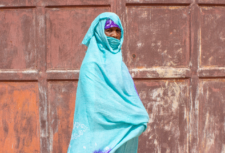Disclaimer: This article is more than 8 years old, and may not include the most up-to-date information or statistics. Please verify information with more recent sources as needed, and if you have any questions contact our Press Office.
7 October 2015
Decent work is at the heart of anti-slavery struggle
Dr. Aidan McQuade, Director
It is something that on the World Day for Decent Work 2015 there is finally a recognition by the UN in the newly adopted Sustainable Development Goals of the importance of decent work in poverty reduction.
Goal 8 of the SDGs aims to “Promote inclusive and sustainable economic growth, employment and decent work for all”, with one of its key targets, 8.7, to, “Take immediate and effective measures to eradicate forced labour, end modern slavery and human trafficking and secure the prohibition and elimination of the worst forms of child labour, including recruitment and use of child soldiers, and by 2025 end child labour in all its forms.”
It is often the search for decent work that brings people into forced labour and slavery. The construction workers for FIFA’s World Cup in Qatar; the overseas domestic workers in servitude in London; the girls and young women enslaved in the garment workshops of Tamil Nadu in India; the migrant workers in the fisheries supply chains of Thailand. All of these have in common that it was their efforts to find decent work to improve their own and their families’ lives that made them vulnerable to their traffickers.
So the recognition of the importance of decent work, along with need for eradication of slavery, as being fundamental to the achievement of poverty reduction, is an important step forward by the international development community that has previously overlooked the issue of labour rights in ending poverty.
But this is where the difficult part begins. Because the achievement of decent work and the ending of slavery are intensely political challenges. Both require a significant rethinking of the way in which business, employment and trade are conducted in the globalising political economy. Both require greater attention to safe migration options for those in search of decent employment, that doesn’t deliver vulnerable workers into the hands of unscrupulous traffickers. Both require ending of the impunity with which traffickers and nations that tolerate or facilitate forced labour, can engage in international business.
These are huge challenges. But today is a good day to reflect that decent work is at the very heart of both the anti-slavery struggle and reducing poverty across the world.





